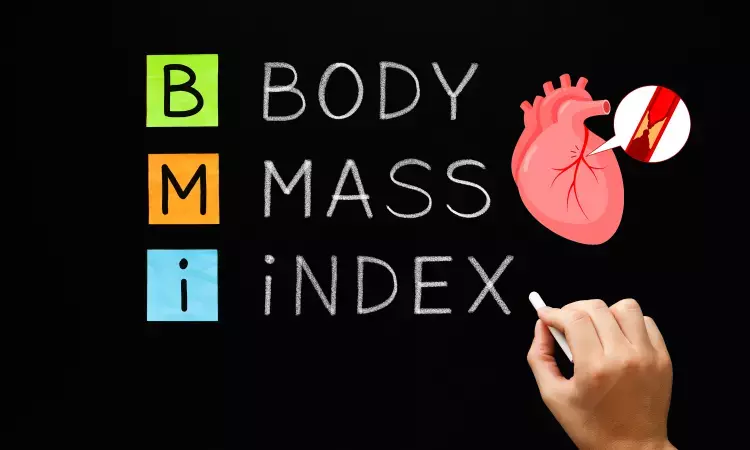- Home
- Medical news & Guidelines
- Anesthesiology
- Cardiology and CTVS
- Critical Care
- Dentistry
- Dermatology
- Diabetes and Endocrinology
- ENT
- Gastroenterology
- Medicine
- Nephrology
- Neurology
- Obstretics-Gynaecology
- Oncology
- Ophthalmology
- Orthopaedics
- Pediatrics-Neonatology
- Psychiatry
- Pulmonology
- Radiology
- Surgery
- Urology
- Laboratory Medicine
- Diet
- Nursing
- Paramedical
- Physiotherapy
- Health news
- Fact Check
- Bone Health Fact Check
- Brain Health Fact Check
- Cancer Related Fact Check
- Child Care Fact Check
- Dental and oral health fact check
- Diabetes and metabolic health fact check
- Diet and Nutrition Fact Check
- Eye and ENT Care Fact Check
- Fitness fact check
- Gut health fact check
- Heart health fact check
- Kidney health fact check
- Medical education fact check
- Men's health fact check
- Respiratory fact check
- Skin and hair care fact check
- Vaccine and Immunization fact check
- Women's health fact check
- AYUSH
- State News
- Andaman and Nicobar Islands
- Andhra Pradesh
- Arunachal Pradesh
- Assam
- Bihar
- Chandigarh
- Chattisgarh
- Dadra and Nagar Haveli
- Daman and Diu
- Delhi
- Goa
- Gujarat
- Haryana
- Himachal Pradesh
- Jammu & Kashmir
- Jharkhand
- Karnataka
- Kerala
- Ladakh
- Lakshadweep
- Madhya Pradesh
- Maharashtra
- Manipur
- Meghalaya
- Mizoram
- Nagaland
- Odisha
- Puducherry
- Punjab
- Rajasthan
- Sikkim
- Tamil Nadu
- Telangana
- Tripura
- Uttar Pradesh
- Uttrakhand
- West Bengal
- Medical Education
- Industry
Higher BMI associated with higher prevalence of thin-cap fibroatheroma in Younger T2D Patients with CAD

Japan: Masahiro Katamine et and colleagues, in a recent study, said that higher BMI is linked to a higher prevalence of TCFA in younger type 2 diabetes (T2D) patients with a history of coronary artery disease (CAD), especially those who have HbA1c ≥7.0%.
This study was published in Nutrition Metabolism and Cardiovascular Diseases.
The relationship between BMI and coronary plaque characteristics in younger T2D patients with CAD is yet to be explored.
One hundred thirty-eight younger T2D patients (<65 yrs) with CAD underwent OCT (optical coherence tomography) imaging of the culprit lesion. Patients were divided into higher BMI (n=68) and lower BMI (n=70) groups according to the median BMI (25.9 kg/m2.
Key findings from this investigation are:
- The high BMI group had a higher prevalence of thin-cap fibroatheroma (TCFA) (35.3 vs. 17.1%) than the lower BMI group.
- The prevalence of TCFA was higher in patients with higher BMI compared to lower BMI among patients with haemoglobin A1c (HbA1c) ≥7.0% with an odds ratio of 5.40, although a significant difference was not observed among patients with HbA1c <7.0% with OR 0.89.
Researchers from Kitasato University School of Medicine concluding further said, “Our study highlighted that Higher BMI in younger diabetes patients with coronary artery disease is linked to vulnerable coronary plaques. In patients with HbA1c ≥7.0%, higher BMI is associated with a higher prevalence of thin-cap fibroatheromas. However, in patients with HbA1c <7.0%, higher BMI is not associated with a higher prevalence of thin-cap fibroatheromas.”
Reference:
Katamine, M. et al. Body mass index and characteristics of coronary plaque in younger patients with type 2 diabetes. Nutrition Metabolism and Cardiovascular Diseases. https://doi.org/10.1016/j.numecd.2023.12.009
BDS, MDS in Periodontics and Implantology
Dr. Aditi Yadav is a BDS, MDS in Periodontics and Implantology. She has a clinical experience of 5 years as a laser dental surgeon. She also has a Diploma in clinical research and pharmacovigilance and is a Certified data scientist. She is currently working as a content developer in e-health services. Dr. Yadav has a keen interest in Medical Journalism and is actively involved in Medical Research writing.
Dr Kamal Kant Kohli-MBBS, DTCD- a chest specialist with more than 30 years of practice and a flair for writing clinical articles, Dr Kamal Kant Kohli joined Medical Dialogues as a Chief Editor of Medical News. Besides writing articles, as an editor, he proofreads and verifies all the medical content published on Medical Dialogues including those coming from journals, studies,medical conferences,guidelines etc. Email: drkohli@medicaldialogues.in. Contact no. 011-43720751


